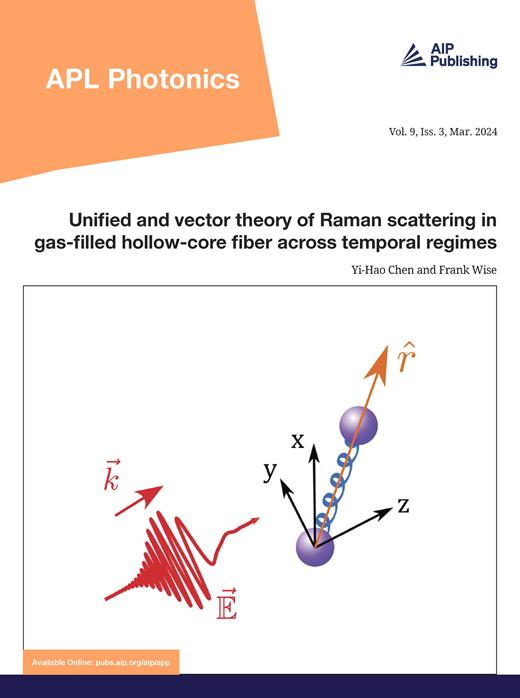基于缺陷的高效量子发射器的合理设计
IF 5.3
1区 物理与天体物理
Q1 OPTICS
引用次数: 0
摘要
单光子发射器是量子网络的重要组成部分,而半导体中的缺陷或杂质是实现此类量子发射器的理想平台。在此,我们提出了一个模型,该模型囊括了与声子耦合的基本物理学原理,而这正是实际单光子发射器行为的主导因素,我们还对常用的几种近似方法进行了严格评估。电信波长范围内的发射是非常理想的,但我们的模型显示,在这些低光子能量下,非辐射过程会大大增强,从而导致效率下降。我们的结果表明,降低声子频率是提高效率的有效途径。本文章由计算机程序翻译,如有差异,请以英文原文为准。
Rational design of efficient defect-based quantum emitters
Single-photon emitters are an essential component of quantum networks, and defects or impurities in semiconductors are a promising platform to realize such quantum emitters. Here, we present a model that encapsulates the essential physics of coupling to phonons, which governs the behavior of real single-photon emitters, and critically evaluate several approximations that are commonly utilized. Emission in the telecom wavelength range is highly desirable, but our model shows that nonradiative processes are greatly enhanced at these low photon energies, leading to a decrease in efficiency. Our results suggest that reducing the phonon frequency is a fruitful avenue to enhance the efficiency.
求助全文
通过发布文献求助,成功后即可免费获取论文全文。
去求助
来源期刊

APL Photonics
Physics and Astronomy-Atomic and Molecular Physics, and Optics
CiteScore
10.30
自引率
3.60%
发文量
107
审稿时长
19 weeks
期刊介绍:
APL Photonics is the new dedicated home for open access multidisciplinary research from and for the photonics community. The journal publishes fundamental and applied results that significantly advance the knowledge in photonics across physics, chemistry, biology and materials science.
 求助内容:
求助内容: 应助结果提醒方式:
应助结果提醒方式:


